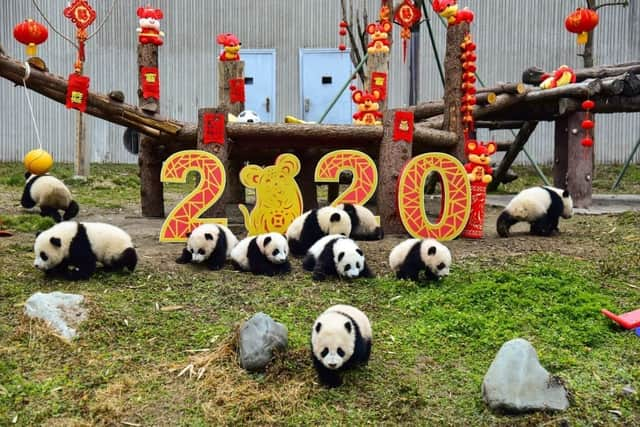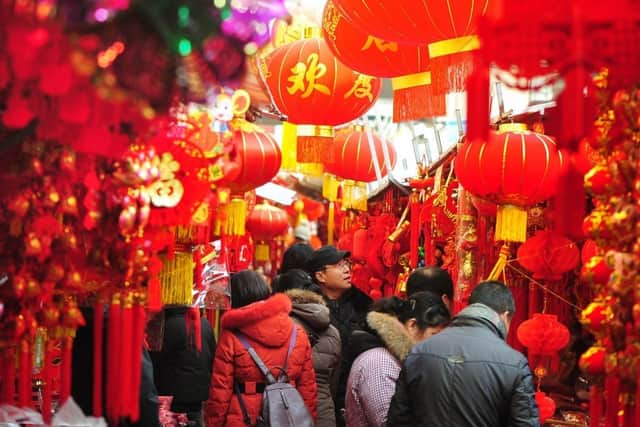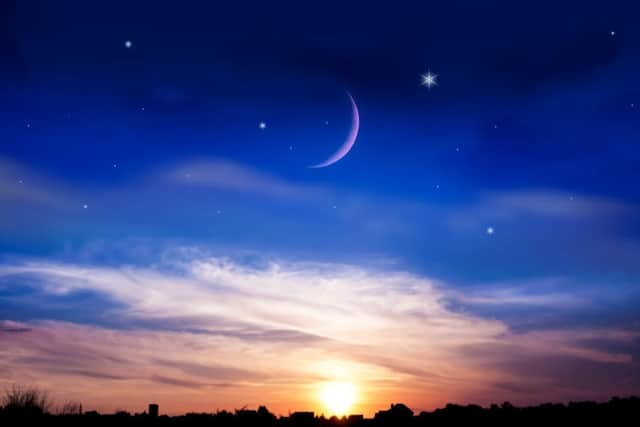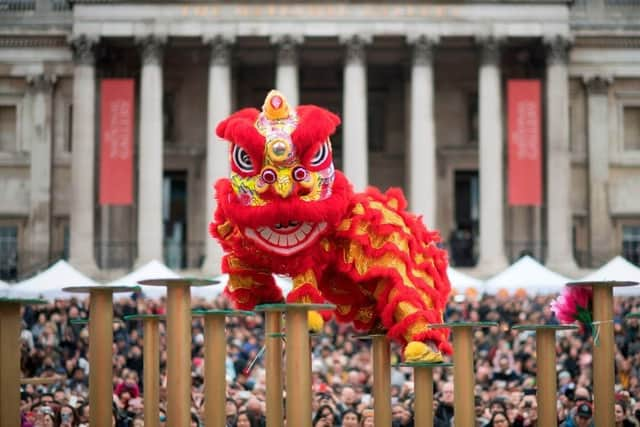Here’s why Chinese people celebrate New Year on a different date


Chinese New Year is one of the most celebrated dates on the calendar, with billions of people across China and beyond joining in the festivities.
In China, people engage in huge treks across the country to be home in time for the celebrations which can last for days on end. Children look forward to it particularly, knowing it will likely bring them plenty of precious little red envelopes filled with money.
Here’s everything you need to know about Chinese New Year.
Advertisement
Hide AdAdvertisement
Hide Ad

You will see red everywhere when Chinese New Year comes around. Picture: AFP
When is Chinese New Year 2020?
In 2020, Chinese New Year will fall on Saturday 25 January – it will be the year of the rat.
This naming tradition comes from the animals of the Chinese zodiac, with each year being assigned one of the following animals – rat, ox, tiger, rabbit, dragon, snake, horse, goat, monkey, rooster, dog and pig.


The animals are rotated in sequence based on a fable about them racing and the order in which they finished. It is thought that any year which falls under the sign a person was born under can hold bad luck for them.
Advertisement
Hide AdAdvertisement
Hide AdWhy is it also called the Lunar New Year?
While it is commonly referred to in the West as ‘Chinese New Year’, the date is also celebrated across Korea, Vietnam, Singapore and elsewhere. It could more accurately be termed the ‘Lunar New Year’.


This is because the traditional Chinese calendar which it is based on is measured by the position of the Moon, rather than by the Earth’s revolution around the Sun as it is in the Gregorian calendar. In China, the celebrations are usually termed the ‘Spring Festival’.
Chinese New Year is determined by the phases of the moon. Picture: Shutterstock
How does the Chinese calendar work?
Chinese New Year differs from the ‘standard’ western New Year’s Day because it is based on the traditional Chinese calendar rather than the Gregorian one.
Advertisement
Hide AdAdvertisement
Hide AdThis is in spite of the fact that the Gregorian calendar is now used in day to day life in China, as it is in most of the world. It was officially adopted there in 1912.
The Gregorian calendar is now almost ubiquitous across the globe, although a few nations (like Ethiopia, Nepal and Iran) still retain their own calendars instead.
The traditional Chinese calendar is based on a mixture of lunar and solar phenomenon - days still begin and end at midnight but months begin on the day of the full moon and years begin on the second new moon after the winter solstice. This places the New Year as beginning on the day of the first new moon that falls between 21 January and 20 February.
The traditional Chinese calendar is still often used to help pick the dates for weddings, funerals and the like, with certain days believed to be more auspicious than others.
Advertisement
Hide AdAdvertisement
Hide AdHow is New Year celebrated in China?
Fireworks are a huge part of Chinese New Year celebrations, with more rockets set off on that night than on any other night of the year. However, over 500 cities in China have actually now either restricted or outright banned fireworks due to safety concerns and air pollution, but they remain an immensely popular part of the New Year’s celebrations.
The tradition comes from a folk tale about a monster named Nian who was scared away using firecrackers. The colour red was also an important tool in defeating the monster, hence why everything will be decorated red during the New Year period.
The New Year is also seen as a time for honouring your gods and ancestors in the hope of bringing good fortune for the year to come. There are all kinds of taboos which must be avoided to prevent bad fortune, such as showering on New Year’s day or using words like ‘illness’ and ‘death’.
